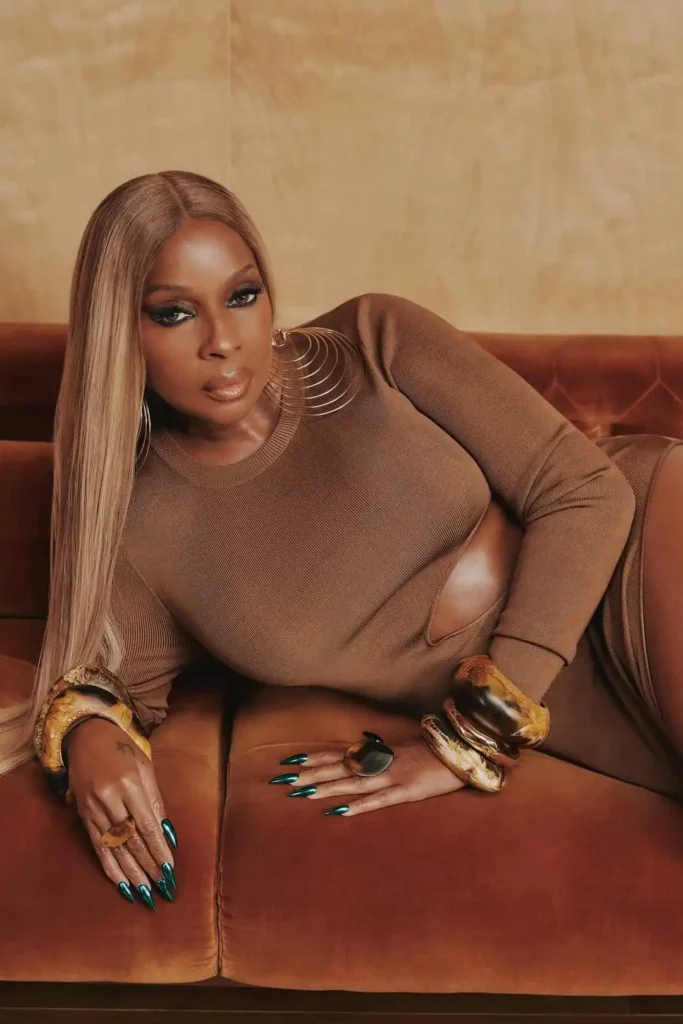On September 27th, 2024, the world was met with the heartbreaking news of the death of Mary J. Blige, a pioneering force in the music industry who transformed the landscape of R&B and hip-hop. Known for her raw emotion, soulful voice, and her ability to connect with fans on a personal level, Blige’s passing marks the end of an era for an artist who spent over three decades at the forefront of the industry.
Early Life and Rise to Fame
Mary Jane Blige was born on January 11, 1971, in The Bronx, New York, to a family that struggled financially. Blige grew up in a public housing project in Yonkers, New York, and from a young age, music became her escape from the challenges of her environment. Singing in church choirs and discovering her passion for R&B, Blige recorded a cover of Anita Baker’s “Caught Up in the Rapture” as a teenager, a tape that would eventually reach Uptown Records, setting her career in motion.
Blige’s debut album, What’s the 411?, released in 1992, instantly set her apart from her peers. Mixing hip-hop beats with soulful vocals, she was one of the first to popularize a sound that blended street culture with emotional vulnerability. The hit singles “Real Love” and “You Remind Me” brought her widespread recognition, while her unapologetic attitude made her relatable to millions. With her distinct sound and image, Mary J. Blige quickly became known as the “Queen of Hip-Hop Soul.”
Iconic Career and Achievements
Throughout her career, Mary J. Blige released 14 studio albums, many of which achieved multi-platinum status. Albums like *My Life* (1994), *Share My World* (1997), and *The Breakthrough* (2005) showcased her powerful voice, storytelling abilities, and personal growth, cementing her place in music history. Hits like “Be Without You,” “No More Drama,” and “Family Affair” became anthems of resilience, self-discovery, and healing, resonating with fans from all walks of life.
Blige’s career was marked not only by her musical talent but also by her versatility. She collaborated with artists across genres, including Method Man, U2, Drake, and Disclosure. Her crossover appeal brought R&B and hip-hop to mainstream audiences, bridging gaps between genres and generations.
In addition to her music, Blige was an accomplished actress. Her performance in the 2017 Netflix film *Mudbound* earned her Academy Award nominations for Best Supporting Actress and Best Original Song, making her the first person to be nominated for acting and songwriting in the same year. Her acting work further solidified her reputation as an all-around entertainer with a wide-reaching influence.
Personal Life and Struggles
Despite her professional success, Blige’s personal life was often marked by challenges. Throughout the 1990s and early 2000s, she was open about her struggles with substance abuse, which she attributed to childhood trauma, abusive relationships, and the pressures of fame. She battled alcoholism and drug addiction, seeking solace in substances as a way to cope with emotional pain.
Blige’s honesty about her struggles endeared her to fans, many of whom admired her ability to speak candidly about the hardships of life. She often expressed her journey of healing through her music, especially in albums like *No More Drama*, where she declared her desire to leave behind the toxic cycles that had plagued her early life.
Blige’s 13-year marriage to Kendu Isaacs ended in a highly publicized divorce in 2016, during which she spoke about financial and emotional hardships. Despite these challenges, she emerged from the turmoil with a renewed sense of purpose, channeling her pain into her art and continuing to inspire millions with her resilience.
Health Struggles and Impact on Her Life
In addition to her personal struggles, Blige faced numerous health issues throughout her life. In her later years, she opened up about her battle with depression and anxiety, which she said had worsened during her darkest periods. These mental health struggles were compounded by her physical health challenges, including high blood pressure and a chronic struggle with weight fluctuations.
Blige’s health problems, both physical and mental, became a key part of her narrative, and she became an advocate for self-care and wellness, particularly for Black women. She spoke openly about the importance of therapy, spirituality, and staying active as ways to combat the mental and physical toll of fame, stress, and personal trauma.
By the time of her death, Mary J. Blige had left an indelible mark on the world of music, culture, and entertainment. Her authenticity, vulnerability, and resilience resonated deeply with fans, making her an icon who transcended generations. Blige’s legacy is not just her chart-topping hits or award-winning performances, but her ability to speak truth to power and offer a voice to those who often feel voiceless.
Though her passing marks the end of a groundbreaking career, Mary J. Blige’s influence will live on through her music, her films, and her impact on the countless artists and fans she inspired throughout her life. As the world mourns her loss, we celebrate the incredible life and legacy of a woman who used her voice to heal, empower, and uplift others
